ICD, also known as an implantable cardioverter defibrillator is a device which is implanted to regulate abnormal heart rhythms. Just like a pacemaker, an ICD consists of two parts: a pulse generator and leads or wires that transmit electrical signals to and from the heart muscle. This device also consists of a small unit with a computer that monitors the heart rhythm and when necessary generates an electrical shock to restore normal heart rate and rhythm. This device is usually prescribed to patients who have had at least one episode of ventricular arrhythmia or ventricular fibrillation, previous cardiac arrest and in cases where medications were unable to control the heart rhythm problem or caused severe side effects.
Hospitals in U.A.E have multidisciplinary teams comprising of specialists from all different areas involved in the treatment of ICD Combo Device Surgery. The cardiologists and the nursing staff are highly trained and experienced. The hospitals offer a full array of collaborative medical services from initial screening and diagnosis to treatment and supportive counseling. The advanced medical technology and the timely medical services make U.A.E one of the important medical destinations for the ICD Combo Device Surgery.
The cost of ICD Combo Device Surgery in U.A.E. is affected by the technology used, qualifications or experience of the surgeon or the doctor, treatment method, cost of medications, type of hospital, diagnosis and general health of the patient. With a diverse team of the cardiologists, cardiac surgeons, heart care specialist nurses, physician assistants, and physical therapists the hospitals in U.A.E. are going extra miles to provide the best facilities to the medical tourists.
Treatment cost
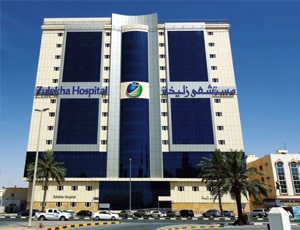
Types of ICD Combo Device (Only Surgery) in Zulekha Hospital Sharjah and its associated cost
| Treatment Option | Approximate Cost Range (USD) | Approximate Cost Range (AED) |
|---|---|---|
| ICD Combo Device Surgery (Overall) | 9068 - 12158 | 33339 - 45206 |
| ICD with Dual-Chamber Pacemaker | 9521 - 12677 | 35110 - 47622 |
| ICD with Single-Chamber Pacemaker | 9171 - 12557 | 32931 - 45047 |
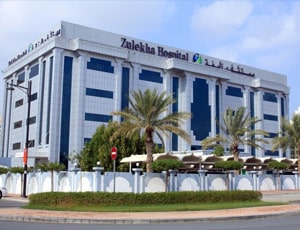
Types of ICD Combo Device (Only Surgery) in Zulekha Hospital Dubai and its associated cost
| Treatment Option | Approximate Cost Range (USD) | Approximate Cost Range (AED) |
|---|---|---|
| ICD Combo Device Surgery (Overall) | 9071 - 12207 | 32358 - 45073 |
| ICD with Dual-Chamber Pacemaker | 9744 - 12788 | 34454 - 47090 |
| ICD with Single-Chamber Pacemaker | 8833 - 12503 | 33680 - 44548 |
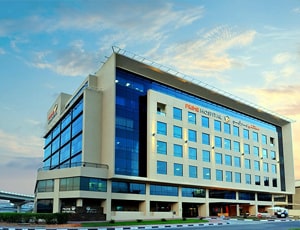
Types of ICD Combo Device (Only Surgery) in Prime Hospital and its associated cost
| Treatment Option | Approximate Cost Range (USD) | Approximate Cost Range (AED) |
|---|---|---|
| ICD Combo Device Surgery (Overall) | 9082 - 12242 | 33662 - 46070 |
| ICD with Dual-Chamber Pacemaker | 9421 - 12916 | 34346 - 48196 |
| ICD with Single-Chamber Pacemaker | 8810 - 12301 | 33609 - 45740 |

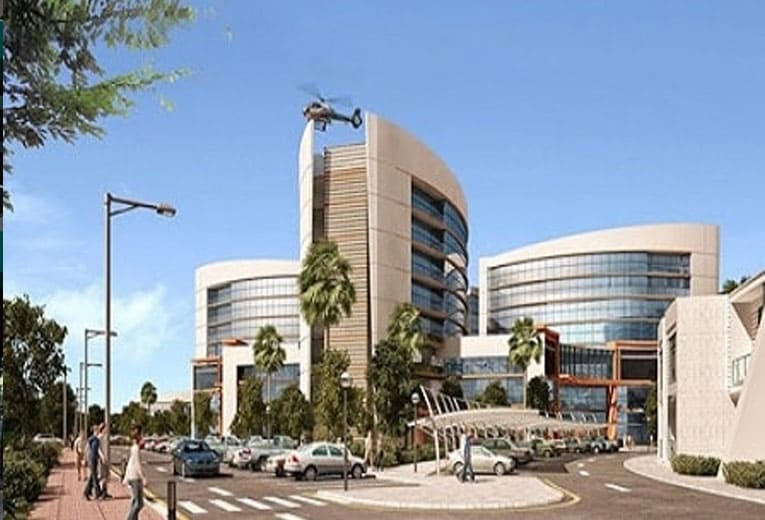
Types of ICD Combo Device (Only Surgery) in Burjeel Medical City and its associated cost
| Treatment Option | Approximate Cost Range (USD) | Approximate Cost Range (AED) |
|---|---|---|
| ICD Combo Device Surgery (Overall) | 8817 - 12575 | 33470 - 44763 |
| ICD with Dual-Chamber Pacemaker | 9504 - 12921 | 35318 - 47194 |
| ICD with Single-Chamber Pacemaker | 8979 - 12460 | 33615 - 45786 |
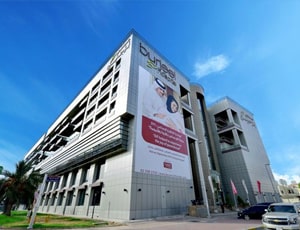
Types of ICD Combo Device (Only Surgery) in Burjeel Hospital, Abu Dhabi and its associated cost
| Treatment Option | Approximate Cost Range (USD) | Approximate Cost Range (AED) |
|---|---|---|
| ICD Combo Device Surgery (Overall) | 9083 - 12352 | 32718 - 46168 |
| ICD with Dual-Chamber Pacemaker | 9562 - 13024 | 34884 - 47633 |
| ICD with Single-Chamber Pacemaker | 8997 - 12487 | 32487 - 45411 |

Types of ICD Combo Device (Only Surgery) in Dr. Amal Alias Fertility & Gynaecology Center and its associated cost
| Treatment Option | Approximate Cost Range (USD) | Approximate Cost Range (AED) |
|---|---|---|
| ICD Combo Device Surgery (Overall) | 8857 - 12254 | 33419 - 45797 |
| ICD with Dual-Chamber Pacemaker | 9615 - 12732 | 35189 - 48053 |
| ICD with Single-Chamber Pacemaker | 9089 - 12577 | 32511 - 46141 |
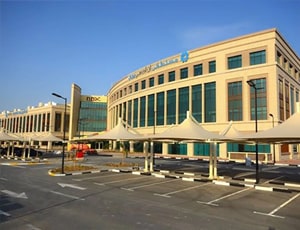
Types of ICD Combo Device (Only Surgery) in NMC Royal Hospital, Khalifa City and its associated cost
| Treatment Option | Approximate Cost Range (USD) | Approximate Cost Range (AED) |
|---|---|---|
| ICD Combo Device Surgery (Overall) | 8951 - 12331 | 33440 - 46221 |
| ICD with Dual-Chamber Pacemaker | 9713 - 13175 | 35412 - 46441 |
| ICD with Single-Chamber Pacemaker | 8890 - 12407 | 33299 - 45439 |
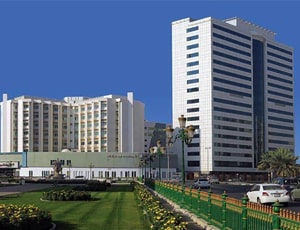
Types of ICD Combo Device (Only Surgery) in NMC Royal Hospital Sharjah and its associated cost
| Treatment Option | Approximate Cost Range (USD) | Approximate Cost Range (AED) |
|---|---|---|
| ICD Combo Device Surgery (Overall) | 9084 - 12215 | 33368 - 45229 |
| ICD with Dual-Chamber Pacemaker | 9461 - 12818 | 35180 - 48363 |
| ICD with Single-Chamber Pacemaker | 8999 - 12589 | 32882 - 46098 |
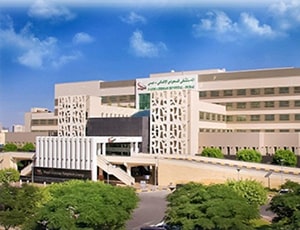
Types of ICD Combo Device (Only Surgery) in Saudi German Hospital and its associated cost
| Treatment Option | Approximate Cost Range (USD) | Approximate Cost Range (AED) |
|---|---|---|
| ICD Combo Device Surgery (Overall) | 8812 - 12415 | 33026 - 46417 |
| ICD with Dual-Chamber Pacemaker | 9524 - 12869 | 35520 - 47656 |
| ICD with Single-Chamber Pacemaker | 8832 - 12250 | 33241 - 44719 |
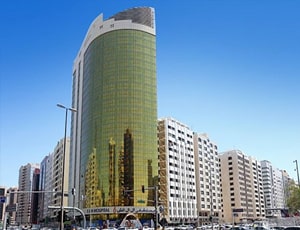
Types of ICD Combo Device (Only Surgery) in LLH Hospital, Abu Dhabi and its associated cost
| Treatment Option | Approximate Cost Range (USD) | Approximate Cost Range (AED) |
|---|---|---|
| ICD Combo Device Surgery (Overall) | 8974 - 12217 | 32309 - 46230 |
| ICD with Dual-Chamber Pacemaker | 9695 - 12739 | 35382 - 46604 |
| ICD with Single-Chamber Pacemaker | 9093 - 12256 | 33190 - 45215 |
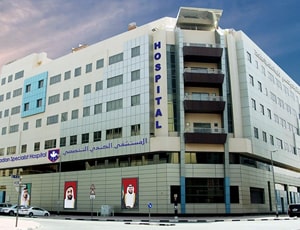
Types of ICD Combo Device (Only Surgery) in Canadian Specialist Hospital and its associated cost
| Treatment Option | Approximate Cost Range (USD) | Approximate Cost Range (AED) |
|---|---|---|
| ICD Combo Device Surgery (Overall) | 9173 - 12530 | 33168 - 44668 |
| ICD with Dual-Chamber Pacemaker | 9373 - 13053 | 34840 - 48216 |
| ICD with Single-Chamber Pacemaker | 8972 - 12251 | 33370 - 46073 |
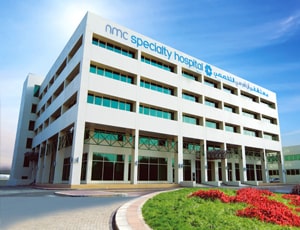
Types of ICD Combo Device (Only Surgery) in NMC Specialty Hospital - Al Ain and its associated cost
| Treatment Option | Approximate Cost Range (USD) | Approximate Cost Range (AED) |
|---|---|---|
| ICD Combo Device Surgery (Overall) | 8831 - 12352 | 32529 - 44850 |
| ICD with Dual-Chamber Pacemaker | 9408 - 12810 | 35774 - 46842 |
| ICD with Single-Chamber Pacemaker | 8889 - 12399 | 32779 - 45945 |
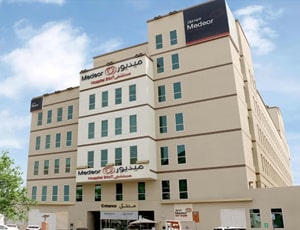
Types of ICD Combo Device (Only Surgery) in Medeor 24X7 Hospital and its associated cost
| Treatment Option | Approximate Cost Range (USD) | Approximate Cost Range (AED) |
|---|---|---|
| ICD Combo Device Surgery (Overall) | 8096 - 11154 | 29746 - 41016 |
| ICD with Dual-Chamber Pacemaker | 8633 - 11656 | 31622 - 42747 |
| ICD with Single-Chamber Pacemaker | 8099 - 11170 | 29773 - 41140 |

Types of ICD Combo Device (Only Surgery) in Medeor 24X7 International Hospital, Al Ain and its associated cost
| Treatment Option | Approximate Cost Range (USD) | Approximate Cost Range (AED) |
|---|---|---|
| ICD Combo Device Surgery (Overall) | 8121 - 11112 | 29798 - 40911 |
| ICD with Dual-Chamber Pacemaker | 8644 - 11649 | 31748 - 42681 |
| ICD with Single-Chamber Pacemaker | 8080 - 11140 | 29720 - 41110 |
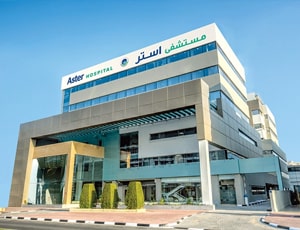
Types of ICD Combo Device (Only Surgery) in Aster DM Healthcare and its associated cost
| Treatment Option | Approximate Cost Range (USD) | Approximate Cost Range (AED) |
|---|---|---|
| ICD Combo Device Surgery (Overall) | 8910 - 12406 | 32796 - 45814 |
| ICD with Dual-Chamber Pacemaker | 9706 - 13080 | 34773 - 48048 |
| ICD with Single-Chamber Pacemaker | 8852 - 12502 | 33242 - 45062 |
Implantable cardioverter defibrillator (ICD) is a small device placed under the skin to keep track of the heartbeat. A defibrillator implant is useful in preventing sudden death and abrupt cardiac arrest in patients who may not have suffered a heart attack, but are at its risk.
A heart fibrillator surgery can be required in adults, teens and in unfortunate cases, children too. Any cardiologist can recommend defibrillator procedure if an individual suffers from arrhythmia. An ICD pacemaker is very good at treating life-threatening problems, such as ventricular arrhythmias.
Some forms of arrhythmias make the ventricles either quiver frequently or beat too fast. People who have earlier suffered from a ventricular arrhythmia before or had a heart attack that previously damaged the electrical system of the heart are at a higher risk of ventricular arrhythmias in the future.
People who have fortunately survived a sudden cardiac arrest (SCA) are often recommended an ICD pacemaker surgery. Even for those who have specific heart conditions that put them at higher risk for SCA can also be recommended defibrillator procedure. Some of the common causes of arrhythmias include the following:
Some of the noticeable symptoms of arrhythmia include the following:
An ICD pacemaker device monitors the heartbeat at every moment and if required, it delivers an extra beat or gives an electrical shock to restore a normal heart rhythm. Another implantable device may be combined with it to control abnormal heart rhythms.
The defibrillator procedure can be performed on an outpatient or inpatient basis. Depending on the experience and preference of the doctor, the procedure can slightly vary.
After removal of jewelry and accessories and change into the hospital gown, the patient is required to empty their bladder. An IV line is started in the hand or arm before the procedure so that medicines and fluids can be injected later.
The patient is closely monitored before the surgery and it is necessary to inform about any discomfort that is felt after AICD placement. Some amount of chest pain is normal. Vital signs are monitored and the easily digestible food is given for a few days.You will be discharged when the breathing and heart rate stabilizes. Within a few weeks or so, you can resume a normal life with some restrictions on movement as advised by the doctor. Driving has to be avoided until the doctor approves of it.
Specific instruction has to be followed regarding bathing and dressing. Regular evaluation of ICD is required at a certain frequency. A duly filled card will be given at the time of discharge, which must be carried by you. You must inform the security personnel during airport screening or mall screening that you have an ICD installed. You must also avoid being close to heavy motors or strong magnetic and electromagnetic fields.
You must notify your doctor if you feel feverish, palpitations, or have severe chest pain during the recovery period or at any point of time. You must discard completely discard the habit of carrying the mobile in your chest pocket.
Ask your healthcare adviser for the best multiple options and choose the one that meets your expectations
The cost of ICD Combo Device (Only Surgery) in the United Arab Emirates may differ from one medical facility to the other. There are many hospital that cover the cost of pre-surgical investigations of the patient in the treatment package. The ICD Combo Device (Only Surgery) cost in the United Arab Emirates includes the cost of anesthesia, medicines, hospitalization and the surgeon's fee. Post-surgical complications, new findings and delayed recovery may have an impact on the total ICD Combo Device (Only Surgery) cost in the United Arab Emirates.
There are several best hospitals for ICD Combo Device (Only Surgery) in the United Arab Emirates. Some of the best hospitals for ICD Combo Device (Only Surgery) in the United Arab Emirates include the following:
After ICD Combo Device (Only Surgery) in the United Arab Emirates, the patient is supposed to stay in guest house for another 14 days. This time frame is important to ensure that the surgery was successful and the patient is fit to fly back.
Apart from the cost of ICD Combo Device (Only Surgery), the patient is also required to pay additionally for daily meals and guest house accommodation. The per day extra expenses in the United Arab Emirates per person are about USD 50 per person.
Some of the best cities in the United Arab Emirates which offer ICD Combo Device (Only Surgery) are:
Patients who are interested in availing telemedicine consultation before they travel for ICD Combo Device (Only Surgery) in the United Arab Emirates can opt for the same. There are many ICD Combo Device (Only Surgery) surgeons who offer video telemedicine consultation, including the following:
| Doctor | Cost | Schedule Your Appointment |
|---|---|---|
| Dr. Kamal Al Abdi | USD 173 | Schedule Now |
| Dr. Girishchandra Varma | USD 173 | Schedule Now |
| Dr. Luc J M T Tambeur | USD 173 | Schedule Now |
| Dr. Ala Eldin Farasin | USD 173 | Schedule Now |
After ICD Combo Device (Only Surgery), the patient is supposed to stay for about 2 days in the hospital for recovery and monitoring. During the recovery, the patient is carefully monitored and control tests are performed to see that everything is okay. If required, physiotherapy sessions are also planned during recovery in hospital.
The average rating for ICD Combo Device (Only Surgery) hospitals in the United Arab Emirates is 4.5. This rating is automatically calculated on the basis of several parameters such as the infrastructure of the hospital, quality of services, nursing support and other services.
There are more than 18 hospitals that offer ICD Combo Device (Only Surgery) in the United Arab Emirates. These clinics have propoer infrastructure as well as offer good quality of services when it comes to ICD Combo Device (Only Surgery) These hospitals comply with all the rules and regulations as dictated by the regulatory bodies and medical association in United Arab Emirates
Some of the renowned medical specialists for ICD Combo Device (Only Surgery) in the United Arab Emirates are: